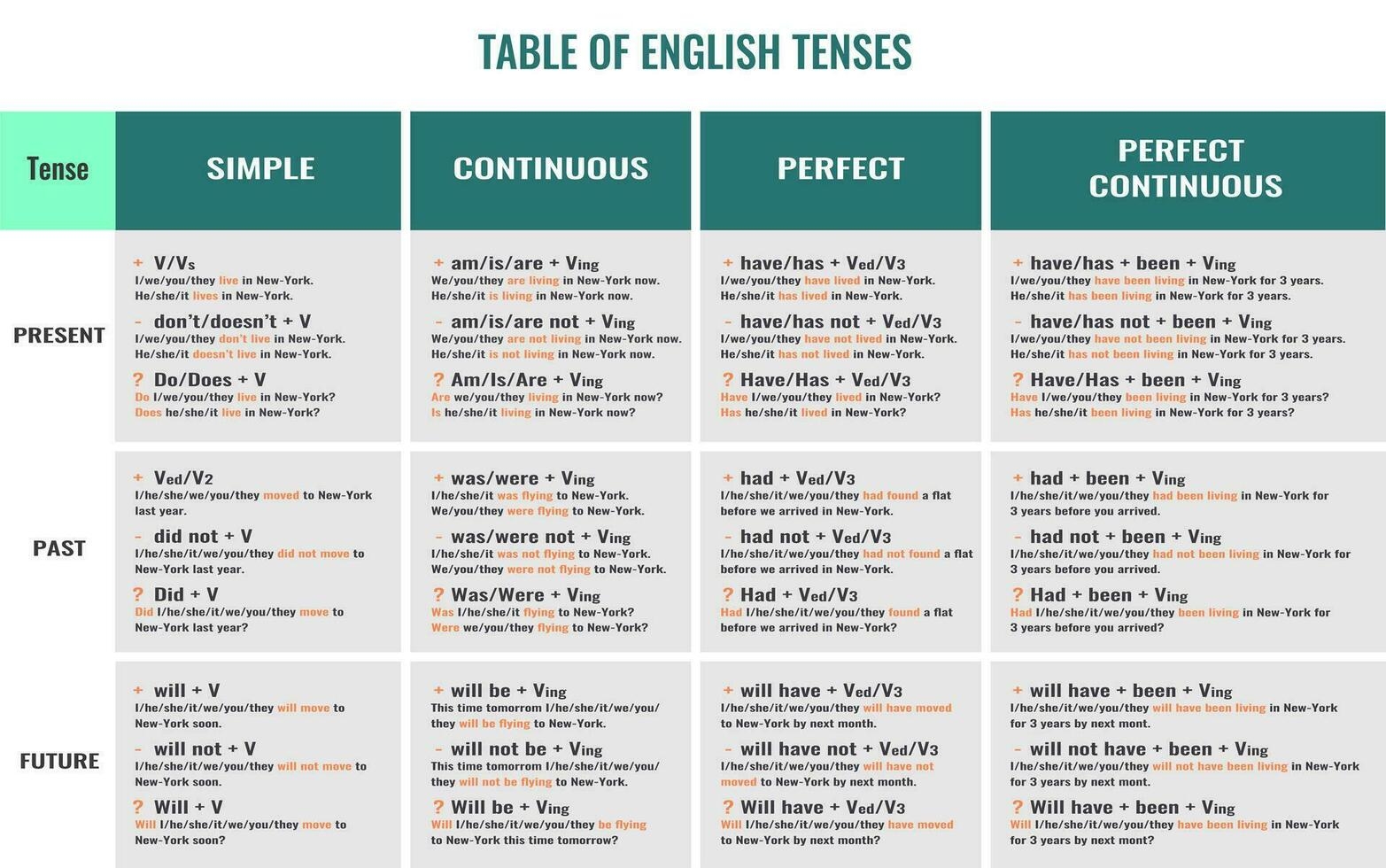English tenses can be a confusing topic for many learners, but they are an essential part of mastering the language. Tenses help us to understand when an action took place, whether it is happening now, has already happened, or will happen in the future. By learning how to use tenses correctly, you can communicate more effectively in English.
In English, there are 12 basic tenses that are commonly used. Each tense has its own rules for formation and usage, so it is important to understand the differences between them. By practicing and using tenses in your everyday conversations, you can improve your fluency and accuracy in English.
English Tenses with Examples
1. Present Simple Tense: I work in a bank.
2. Present Continuous Tense: She is studying for her exams.
3. Present Perfect Tense: They have visited Paris twice.
4. Past Simple Tense: He played football yesterday.
5. Future Simple Tense: We will go to the beach next weekend.
Each tense serves a specific purpose and conveys different information about the timing of an action. By practicing these tenses with examples, you can become more familiar with how and when to use them in your own writing and speaking.
It is important to note that English tenses can sometimes be irregular, meaning that they do not follow the standard rules of formation. For example, irregular verbs have unique forms for each tense, so it is essential to memorize these irregular forms to use them correctly in sentences.
By studying and practicing English tenses regularly, you can improve your language skills and become more confident in your ability to communicate effectively in English. Whether you are a beginner or an advanced learner, understanding tenses is crucial for mastering the language and expressing yourself accurately.
In conclusion, English tenses play a vital role in conveying information about the timing of actions. By familiarizing yourself with the different tenses and practicing them with examples, you can enhance your proficiency in English and communicate more clearly with others. Keep practicing and don’t be afraid to make mistakes – learning tenses takes time and effort, but the rewards are well worth it.
